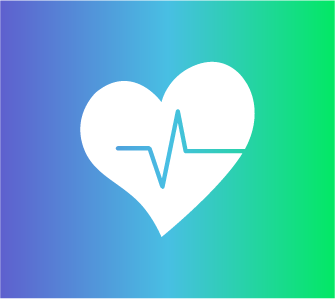Even before the COVID-19 pandemic strained the healthcare system, physician burnout was a recognized and serious concern. Marked by patterns of fatigue, disinterest in practicing medicine, and depersonalization, burnout is affecting more doctors across all specializations. The demand for more hours and the loss of patients the pandemic created have fueled the spiral towards burnout, with many physicians leaving medicine altogether.
Not only is burnout deeply damaging to the doctors it affects, but it’s also a potential public health crisis for non-medical staff as well. Physician burnout creates an unprecedented public health crisis, coupled with increased loss of nursing staff and the flood of patients in hospitals. For doctors on the cusp of breakdown, interventions are critical to helping them and their patients avert disaster.
What is physician burnout?
Unless your job is “cupcake tester,” it’s probably pretty stressful. Long hours, more work with less staff, and complex infrastructure have made most jobs more difficult than ever before.
Doctors already work long hours, often dealing with tedious administrative overhead on top of their medical work. Burnout usually occurs due to overwork with little-to-no opportunity to unwind or manage stress. Without adequate outlets for stress management, people often turn to vices like alcohol, smoking, and unhealthy food. These vices only make things worse, as they stress our body physically while mental overwhelm releases a flood of cortisol, the body’s natural stress hormone.
Symptoms of burnout include but are not limited to:
- Feelings of hopelessness, being trapped, or overwhelmed
- Lack of interest in your job or your hobbies, personal life, or life in general
- Depersonalization and detachment from others
- Lack of motivation or negative feelings regarding accomplishment and self-efficacy
- Forgetfulness
In addition to these mental concerns, there are some physical symptoms associated with burnout:
- Fatigue
- Weight loss or gain
- Lowered immune response
Without intervention to address these symptoms and their root causes, burnout can cause a total collapse. People who entirely burn out often quit medicine and have tremendous upheaval in their lives. You must address your stress before it leads to burnout.
Check out our tips for managing the common causes of physician burnout.
Why physician burnout is a public health crisis
You might think that a doctor’s stress levels are harmful, but how does it rise to the level of a public health crisis? With an aging population, a global pandemic, and more people quitting their jobs than ever — particularly in the healthcare field — losing doctors is dangerous.
Hospitals are already over capacity with COVID cases, pushing back many elective (but still necessary) surgeries. With doctors overburdened by patient needs and a lack of efficacy, they lose hope. As nurses leave medicine, this further overwhelms physicians with work, creating the cycle that leads to burnout. If left unaddressed, burnout can quickly drive doctors out of the field of medicine altogether, which strains other practices, leading to a domino effect of stress.
It’s imperative now more than ever that doctors begin to address the concerns that lead to stress and eventually to burnout. Without looking at the problem, there’s no way to create a solution that helps them, their families, and their patients. Fewer doctors and healthcare professionals affect our ability to care for everyone, making physician burnout a costly public health crisis.
Addressing physician burnout
The absolute first thing that each physician (and medical professional) needs to do is evaluate their stress levels. You may be handling everything just fine, and if that’s the case, then that’s fantastic! If you see yourself as overwhelmed and stressed out, however, one of the first things you need to do is enlist the help of a therapist. Talking to a counselor can help you put things into perspective, address your stress levels, and work on a plan to deal with them.
From there, you need to work on unhealthy habits that you’ve created to cope with stress. Smoking, alcohol, and drug abuse are all short-term solutions to long-term problems that create new problems over time. Giving these up and integrating healthy habits and coping strategies is critical.
Related: See how social media may be contributing to physician burnout.
Another way of dealing with burnout is to get help at work. A telehealth platform like ViTel helps by alleviating the office workload, streamlining tedious tasks like patient billing, and improving patient intake processes. Our telehealth platform can help you find staff, keep confidential patient records, and connect you with more doctors and specialists to help alleviate bottlenecks in your clinic’s service.
If you’re considering expanding to telehealth or just curious about how your practice can benefit from it, sign up for our free ViTel Access Essentials membership. Get access to some basic tools, telehealth training information, and the Doctor’s Lounge to connect with other physicians. We’re here to help prevent physician burnout by improving the methods you have in place to make your office run more smoothly.
If you start reducing your stress levels today, you can improve your life moving forward, resulting in the lives of your patients.






